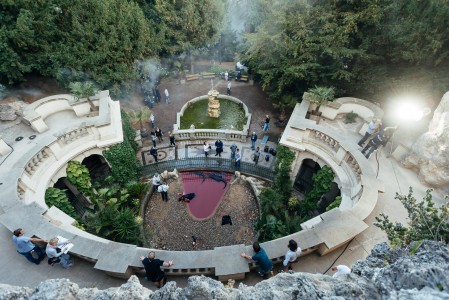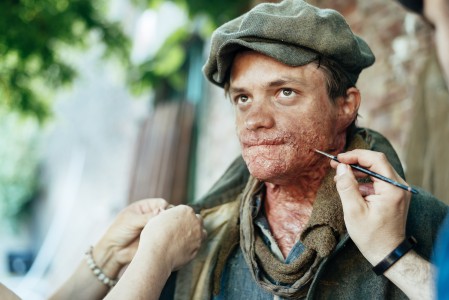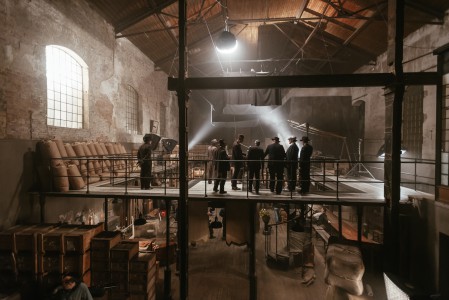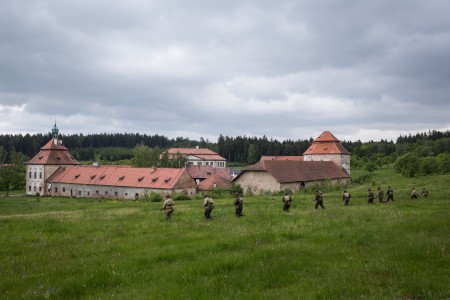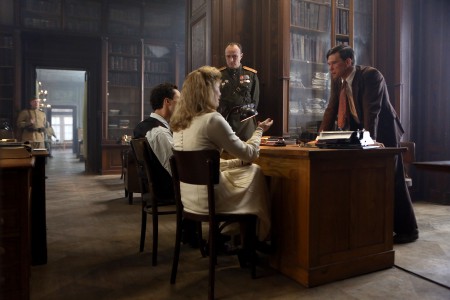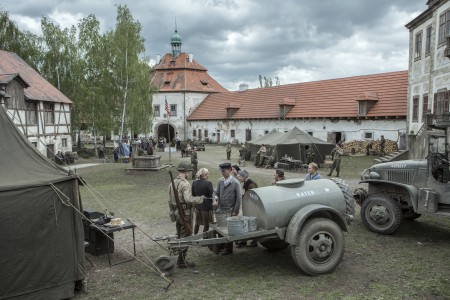From the introduction of incentives in 2010, the Czech Republic hosted over 25 German productions and co-productions, with the total spending of CZK 1.3 billion. Except for one theatrically distributed film, all these have been TV films, mini-series and series.
“Interestingly, the number of German productions and co-productions in our country grows every year – last year alone there were more than a dozen, and their spending amounted to over CZK 600 million. The Germans mostly choose Czech Republic to shoot costly period films and series, whether set in ancient history or in different periods of the 20th century,” said Ludmila Claussová from the Czech Film Comission.
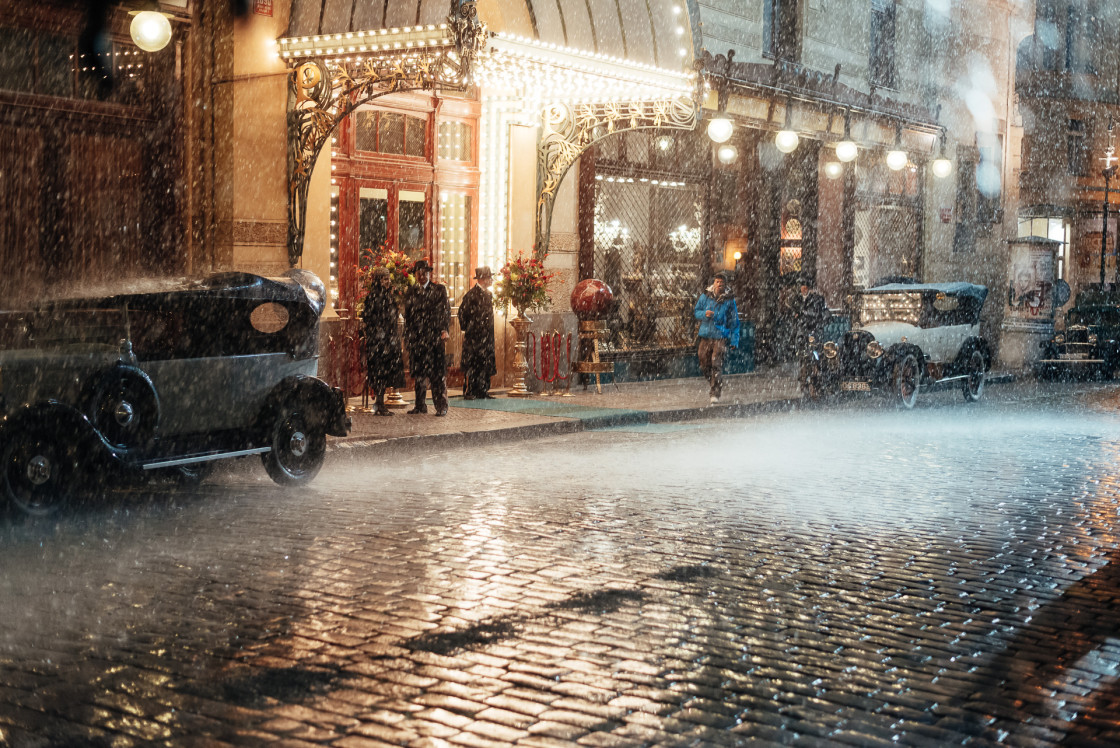
Mordkommission Berlin 1 / Photo courtesy of Wiedemann & Berg Television and Wilma Film, © Jan Hromádko
Czech crews were crucially involved in the production of these films, the quality of which is proven by the recently announced (January 13, 2016) German Television Awards. The film Nackt unter Wölfen (Naked Among Wolves), shot in the Czech Republic, was awarded Best TV Film of 2015, and also had another four nominations. The award for Best Production Design went to Mordkommission Berlin 1, which was also nominated in five other categories. Among the nominees was also the three-part TV film “Tannbach – Schicksal eines Dorfes”.
The film Nackt unter Wölfen (Naked Among Wolves) was filmed for the first public channel ARD in 2014. Its story is based on the novel of the same name by Bruno Apitz (which was also successfully filmed in 1963), taking place in the Buchenwald concentration camp at the end of March 1945, when inmates staged an uprising against SS units.
According to Michal Pokorný of Mia Film, co-producer of the film Nackt unter Wölfen, Czech Republic offers many advantages to producers. Besides the variety of locations, suitable for period projects, there are a lot of renowned experts in various film professions. It is also a very convenient distance away from Germany and Austria.
“It is a fact that we are for them a reliable partner, with compatible and easygoing mentality,” says Pokorný. “A huge role is also played, of course, by the film incentives, which are stabilized and which have earned the trust of foreign partners. This is evidenced by the growing influx of foreign productions from all over the world, and I hope it will remain so into the future,“ added Pokorný.
Another film that was shot in the Czech Republic, awarded for production design, was the crime film Mordkommission Berlin 1 (Homicide Division Berlin 1). Premiering December 1st, 2015 on SAT. 1, its action took place in Berlin of the 1920s, but it was filmed primarily on locations around Prague between May and July 2015.
According to the co-producer of the film Filip Hering, from the production company Wilma Film, it’s not a coincedence that German producers mainly film period pieces in our country. „Unlike contemporary stories, for period pieces you need a lot of filmmakers with a high expertise in various professions, from costumes to props. And in Europe these is basically no other place than the Czech Republic, with such a concentration of experts in a relatively small area, which cover the entire range of film professions needed for period films,“ said Hering.
Wilma Film also co-produced the production of the three-part TV miniseries Tannbach – Schicksal eines Dorfes (Tannbach – Destiny of a Village), an epic family saga about the fate of a fictional village located on the border of Bavaria and Thuringia from the end of World War 2 until 1952. The filming in Czech Republic cost almost CZK 100 million and lasted for 66 shooting days in the spring of 2014. The Tannbach miniseries aired on the German station ZDF in January 2015.
According to the producer Filip Hering, the success of the miniseries and the satisfaction of producers with the Czech Republic is evidenced by the fact that they are planning another three episodes of the miniseries that will be set in the 1960s.
„Currently being shot in the Czech Republic, there is a six-part German TV series Charité about a world-renowned Berlin hospital, and also two crime dramas based on the bestselling work of the Swiss author Martin Suter, titled Allmen und die Libellen (Allmen and the Dragonflies) and Allmen und der rosa Diamant (Allmen and the Pink Diamond),“ informed Ludmila Claussová from the Czech Film Comission.
„Among the series of German-Czech co-productions that plan to film this year are projects such as the feature film directed by Stefan Ruzowitzk, Oscar-winner for the film Die Fälscher (The Counterfeiters, 2007), and a two-part TV film about the reformer Martin Luther,“ added Claussová.
More information and a filmography is available at filmcommission.cz.
